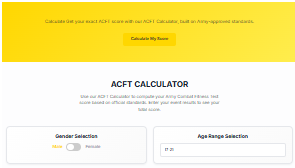What’s ISO 14001—and Why Should Power Plants Care?
Let’s not sugarcoat it—power plants sit under some of the strictest environmental spotlights out there. When your core business involves heat, emissions, water usage, and waste, regulators aren’t just watching; they’re zoomed in. That’s where ISO 14001 comes into play. It’s not just a box-ticking exercise—it’s a structured way to keep your environmental management in check and, frankly, out of the headlines.
So, why should power plants care? Because fines, shutdowns, or revoked permits aren’t just bad—they’re expensive. ISO 14001 helps you stay ahead of all that.
Lead Auditor Training: What’s the Real Point?
You might be wondering—can’t we just train someone in-house and be done with it? Honestly, no. Lead Auditor training isn’t about memorizing procedures or skimming through an EMS manual. It’s about developing a sharp, investigative mindset that sees patterns, not just problems.
Trained auditors understand how to dig below surface-level compliance. They know what questions to ask, when to push, and how to spot red flags early—before they become tomorrow’s incident report.
Compliance, But Smarter: The Real-World Value of Certification
Sure, having the certificate looks good in tenders and boardroom slides—but the real value is what happens behind the scenes. Certified auditors bring discipline to your environmental practices, but they also bring flexibility—helping you spot opportunities to reduce waste, tighten controls, and even save costs.
Think about it like this: every near-miss that doesn’t make it into a government report? That’s your auditor doing their job right. It’s less about passing audits and more about protecting your license to operate.
The Training Process: What Actually Happens in a Lead Auditor Course?
Lead Auditor training isn’t a dry week of PowerPoint presentations. The good ones—like those recognized by Exemplar Global or CQI-IRCA—combine classroom theory with real-world scenarios. Expect role plays, case studies, and awkward mock interviews where you’re forced to think fast and talk smarter.
You’ll learn how to plan audits, manage audit teams, write reports that actually get read, and deal with human behavior under pressure. Sound intense? It is. But that’s exactly what makes it so effective. You walk out not just smarter, but sharper.
Not Just Paperwork: Why Auditors Need Field Smarts
There’s this myth that auditors are glorified clipboard holders. Let’s clear that up—especially for power plants. A good auditor is part detective, part coach, part systems analyst. And when you’re inspecting a flue gas treatment unit or poking through an ash handling system, guess what? You can’t learn that from a spreadsheet.
Field smarts matter. You need to understand operations, spot inconsistencies, and know when “that’s how we’ve always done it” isn’t a good enough answer.
Power Plant-Specific Challenges in Environmental Auditing
Every industry has its quirks, but power plants? They’re loaded with them. Emissions monitoring isn’t just about sticking a sensor in a stack—it’s about understanding how load fluctuations impact output. Wastewater treatment? That’s not just pH readings; it’s complex chemistry, shifting flows, and compliance tied to local discharge permits.
And don’t get us started on fly ash and bottom ash management—storage, reuse, transport. The point is, power plant audits are heavy-duty, literally and figuratively. That’s why ISO 14001 Lead Auditor training tailored to the energy sector isn’t just nice—it’s necessary.
Who Should Be Trained—and When?
Think Lead Auditor training is just for your EMS manager? Not quite. Some of the best auditors out there are plant engineers, control room operators, or even maintenance supervisors who understand how things work on the ground.
The ideal time to train? Before things go sideways. Seriously—don’t wait until there’s an EPA notice sitting on your desk. If you’re scaling operations, changing fuel sources, or planning a retrofit, that’s the time to build your internal audit muscle.
What Happens If You Don’t Have Certified Auditors on Site?
Here’s the quiet truth no one talks about: the absence of certified auditors doesn’t always blow up in your face immediately. But slowly, silently, small issues snowball—logbooks don’t get updated, sampling schedules slip, and contractors cut corners.
Then one day, someone shows up unannounced from the environmental authority, and you’re left scrambling to explain why last month’s emissions report is full of blanks. The cost? Lost credibility, damaged public trust, maybe even operating restrictions.
A certified Lead Auditor could’ve flagged it months ago.
Enhancing Environmental Compliance and Risk Management in Power Plants
Power plants face increasing scrutiny over emissions, waste management, and environmental sustainability. ISO 14001 Lead Auditor Training equips professionals with the knowledge to identify, assess, and mitigate environmental risks effectively. By understanding ISO 14001 standards, auditors can ensure that a plant’s operations comply with environmental laws, regulations, and internal policies. This proactive approach not only reduces the likelihood of fines and legal actions but also helps organizations minimize environmental incidents. Trained auditors can pinpoint inefficiencies, recommend sustainable improvements, and build a culture of environmental responsibility.
Auditor or Ambassador? How Trained Auditors Influence Company Culture
Here’s something most training brochures won’t tell you—auditors shape culture. A well-trained auditor doesn’t just audit; they advocate. They help team members understand why a leaky valve matters or why labeling chemical drums correctly isn’t just about compliance—it’s about safety.
They bridge the gap between the floor and the boardroom, turning policy into action. Over time, they help build a culture where environmental responsibility isn’t feared or resented—it’s just how things are done.
Real Stories: When Environmental Audits Caught Big Problems Early
Let’s bring this home with a few real-world moments. One mid-sized thermal plant in Southeast Asia discovered during a routine audit that their secondary containment area was leaking—only visible during heavy rain. Catching it early saved them thousands in clean-up and penalties.
In another case, an internal auditor flagged inconsistencies in stack emission readings. Turned out a sensor was miscalibrated—again, caught before it became a violation. These aren’t scare tactics; they’re reminders that good audits do more than keep you legal. They keep you running.
Final Thoughts: ISO 14001 Isn’t Just a Badge—It’s a Backbone
Look, ISO 14001 certification doesn’t make your environmental risks disappear. But it gives you a framework—and trained auditors give that framework real teeth. For power plants, where the margin for environmental error is razor-thin, that matters.
Investing in Lead Auditor training isn’t about passing audits. It’s about building internal muscle—people who think critically, act early, and hold the line when things get messy.




Leave a Reply